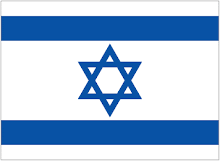The Muslim Council of Britain termed the report 'scaremongering' - the cleric doesn't have a gavel in his hand, he's not a judge, so to call these gatherings 'courts' is apparently ludicrous.
Whatever the case, this creeping acceptance of different legal principles needs to be nipped in the bud - fast.
From The Telegraph:
Some decisions of Islamic tribunals are already considered legally binding and could theoretically be enforced in civil courts in England and Wales.
Other officially recognised bodies can agree to grant Muslim "divorces" as part of a parallel system of religious law in Britain.
"This whole business is creeping up on us without anyone really noticing," said Dr David Green, director of Civitas.
The existence of a network of five court-like sharia bodies in London, Bradford, Birmingham, Coventry and Manchester, expanding to other cities under the umbrella of the Muslim Arbitration Tribual (MAT) has already been widely reported.
But Civitas estimates that the real number of Islamic "courts" operating in Britain is at least 85, as a result of scores of unofficial courts sitting in mosques in which imams make judgments on day-to-day disputes.
It argued that they are unlikely to treat women as equals and could even be against human rights law.
The organisation called for a change in the law to stop the decisions of such bodies being legally enforceable.
The MAT, which deals primarily with disputes between business partners or mosques, says that as a legally constituted arbitration body under the 1996 Arbitration Act, its decisions could be enforced in county courts.
That claim has yet to be challenged in a test case but a similar status for Jewish tribunals is already long established.
Another organisation, the Islamic Sharia Council, has a panel of seven judges based in London, dealing largely with divorce and issuing "fatwas" on issues such as how to bring up children.
Mufti Abdul Kadir Barkatulla, one of its judges, said that the organisation had been operating peacefully alongside the civil courts for 25 years without any major problems.
He also confirmed that dozens of informal sharia bodies sit across the country.
"Every imam, if they are qualified can have a hearings and make decisions according to sharia," he said.
Inayat Bunglawala, of the Muslim Council of Britain, said: "To term them sharia courts is ridiculous, it's just scaremongering."
Qamar Bhatti, a member of the governing body of the MAT, said: "We don't have a court, it's an arbitration, we don't have a judge sitting with a gavel in his hand but that's the image that this report is creating."
.jpg)
















































































1 comment:
Working around British law is subverting British law. That in itself should be seen as a violation of the law, it seems to me.
Post a Comment